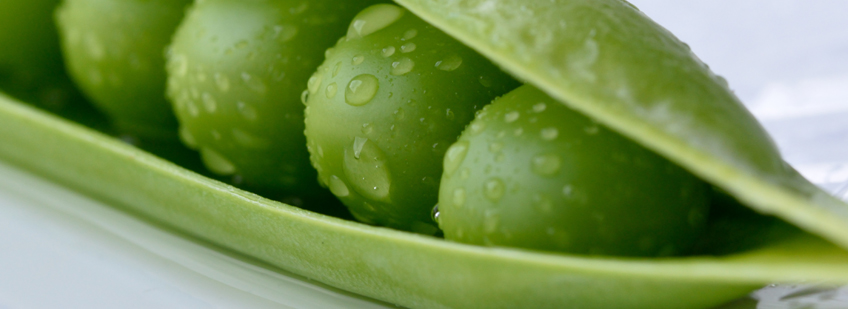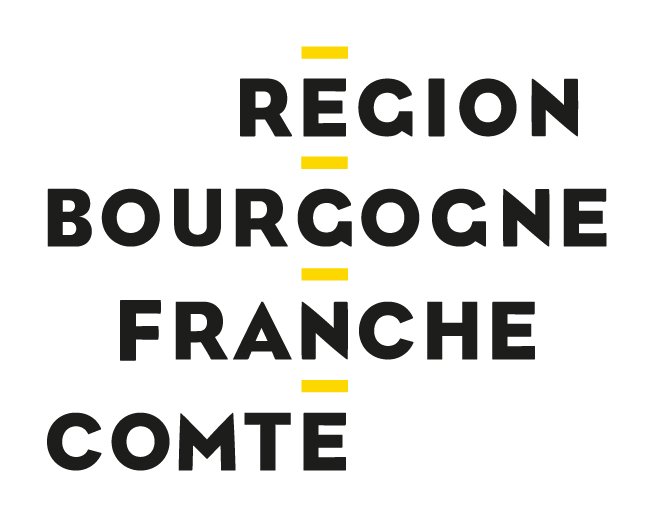06 March 2019 / The experts of the Vitagora ecosystem / Vitagora publication / Science and technologies
Using biocontrol to protect plants against phytopathogens: the example of peas
This article is also available in French:
 Peas are a protein crop from the legume family. They have a very good nutritional composition and require little nitrogen fertilizer. But the plant suffers from certain stresses, including phytopathogenic bacteria that decrease yield. Biocontrol is a natural choice for sustainable farming. What is biocontrol? What are the effects on the plant? What are the benefits?
Peas are a protein crop from the legume family. They have a very good nutritional composition and require little nitrogen fertilizer. But the plant suffers from certain stresses, including phytopathogenic bacteria that decrease yield. Biocontrol is a natural choice for sustainable farming. What is biocontrol? What are the effects on the plant? What are the benefits?
Why this should interest you
- Peas are a protein-rich crop from the legume family with an interesting nutritional composition for human and animal consumption.
- Growing peas is positive for soil composition, subsequent yields and because the plant requires little fertilizer and pesticide.
- The pathogen Aphanomyces euteiches, responsible for root rot, causes severe damage to pea crops.
- No effective method for controlling root rot has been found, so biocontrol may be instrumental in limiting the development of the disease.
Peas are grown for their edible green seeds. Harvested as dry peas at maturity for human consumption, the fodder is used for ruminants. They are a protein crop belonging to the large legume family. They are considered positive for the environment because of their ability to fix nitrogen in the soil, and nutritionally because of the high protein and fibre content in the seeds.
However peas suffer from stresses - biotic and abiotic - that reduce yield and consequently farmers' confidence in their economic returns as a crop. A stress that causes major concern is root rot, caused by Aphanomyces euteiches.
Sylvain Jeandroz, member of academic staff for the Agroecology joint research unit and part of the regional project "Agroécologie en BFC" supported by i-SITE UBFC and led by Nicolas Munier-Jolain, Agroecology joint research unit), shares his expertise about biocontrol and how it can be applied to peas.
Sylvain Jeandroz
Professor at AgroSup Dijon
Researcher Sylvain Jeandroz works at the Agroecology joint research unit. He is responsible for the "Functioning and management of plant-microorganism interactions" team known as the IPM unit. The IPM unit’s goal is to develop biocontrol solutions for crop protection by studying plant immunity mechanisms and the ecology of pathogenic and beneficial bacteria. The teams are conducting research on various plants, ranging from the model plant Arabidopsis to crops such as peas, tomatoes and vines.
The interdisciplinary IPM unit consists of several teams (biochemistry, microbial ecology and physiology) conducting both basic and applied research from cell to plant in its natural environment. They plan to apply research findings to proposing agroecological solutions that can be used in the field or filed for patent.
What is biocontrol?
According to the French Ministry of Agriculture, biocontrol is "plant protection methods using natural mechanisms".
Alone or in combination with other types of plant protection, biocontrol uses mechanisms and interactions that govern natural relationships between species. Biocontrol protects plants against enemies (pathogenic organisms, insects, weeds, etc.) while decreasing - or totally doing away with - synthetic products. Biocontrol uses compositions of microorganisms, chemical mediators (phytohormones), natural plant, animal or mineral substances and macroorganisms.
Microorganisms serving plants
Mutualism between plants and microorganisms: win-win
In biology, mutualism is a natural interaction between two species in which each benefit from the relationship. For example, some microorganisms have beneficial effects on plants when in their rhizosphere. "They bring nutrients to the plant, including nitrogen, phosphorus and other micronutrients, and consume the plant's carbon exudate at root level. The plant receives more nutrients, is stronger and has better defences against stress," adds Sylvain.
Competition between good and bad microorganisms
"It is possible to create a competitive situation between beneficial and pathogenic microorganisms in the soil. When beneficial microorganisms are inoculated in a plant at its roots, they develop, multiply, and in some cases secrete antibiotics against pathogenic organisms, preventing their proliferation and infection of the plant.”
Healthy stress
The presence of microorganisms at the roots of the plant also generates latent stress and the establishment of defences. "The plant perceives microorganisms as external organisms and goes into defence mode, making it ready to fight off real enemies," says Sylvain.

Biocontrol for peas: from greenhouse tests to the field
The aim of the "Agroécologie en BFC" project is to identify agroecological systems that are of agronomic and environmental interest, but also economically and socially viable for the farmer and region (learn more about the project here – in French).
The first biocontrol trials on peas were carried out as part of this project in 2017. "We conducted trials in controlled-conditions (greenhouses) where we sowed pea seeds and then inoculated them with the pathogenic microorganism Aphanomyces euteiches. We treated the plants with biocontrol products to observe their effects on plant survival, the biomass of the aerial and underground parts of the plant, and root colonisation by the pathogen," explains Sylvain.
Results under controlled conditions are often effective and reproducible, but they are not representative of what actually happens in the field. “Production conditions are very different in the field to greenhouse conditions: means of biocontrol application, physiological state of the plant, conditions more or less favourable to infection, etc. However, we hope these experiments help us to identify the best possible biocontrol solutions for the pea plant. That said, many new parameters will need to be considered to ensure optimal use."
"With Christian Steinberg, also from the IPM unit, we decided to test two types of biocontrol products: Plant Defence Stimulators (PDS) and beneficial microorganisms.”
Plant Defence Stimulators (PDS)
Sylvain Jeandroz says: “Knowledge gained by others in our IPM unit about how molecular mechanisms control phytopathogen interactions has enabled us to identify molecular signals associated with plant resistance to disease.”
Treating plants by spraying or watering with these signals or molecules is a new strategy for preventive crop protection with less synthetic products. These molecules are called "elicitors" or plant defence stimulators (PDS).
“We don’t know everything about how these molecules act yet. PDSs generate induced resistance in plants by stimulating immunity mechanisms, but they may also have direct action on the pathogen.”
Determining effective biocontrol solutions
“Biocontrol products - both SDPs and microorganisms - already feature in publications and/or are on the market. But our research aims to identify new products, to elicit their mode of action and to optimise application conditions to generate a positive effect on the plant’s defences," he continues.
"Results are expected at different levels. Combatting stress will help to stabilise pea yields and to diversify plant protein production.”
"More generally, we will learn more about how plants resist to disease and how to develop effective biocontrol solutions for sustainable agriculture," concludes Sylvain.
Keywords
Biocontrol, PDS, beneficial microorganisms, plant immunity, peas, Aphanomyces euteiches
|
Go further...To find out more about biocontrol research, contact Elodie da Silva: elodie.dasilva@vitagora.com
A food engineer from the French city of Toulouse, Elodie leads the "Innovation & Ecosystem" team of Vitagora in providing support for agrifood business innovation goals, with enthusiasm, professionalism and confidentiality. |
Further reading
- Thalineau E., Fournier C., Gravot A., Wendehenne D., Jeandroz S., Truong H.-N. (2018). Nitrogen modulation of Medicago truncatula resistance to Aphanomyces euteiches depends on plant genotype. Mol. Plant Pathol. 19:664-676.
- Lecomte C., Alabouvette C., Edel-Hermann V., Robert F., Steinberg C. (2016). Biological control of ornamental plant diseases caused by Fusarium oxysporum: A review. Biol. Control. 101:17-30.
- Brulé D., Villano C., Davies L.J., Trdá L., Claverie J., Héloir M.-C., Chiltz A., Adrian M., Darblade B., Tornero P., Stransfeld L., Boutrot F., Zipfel C., Dry I.B., Poinssot B. (2018) The grapevine (Vitis vinifera) LysM receptor kinases VvLYK1-1 and VvLYK1-2 mediate chitooligosaccharide-triggered immunity. Plant Biotechnol. J. doi: 10.1111/pbi.13017
- Pfister C., Bourque S., Chatagnier O., Chiltz A., Fromentin J., Van Tuinen D., Wipf D., and Leborgne-Castel N. (2017) Differential signaling and sugar exchanges in response to avirulent pathogen-and symbiont-derived molecules in tobacco cells. Front Microbiol 8 2228




 Home
Home



















